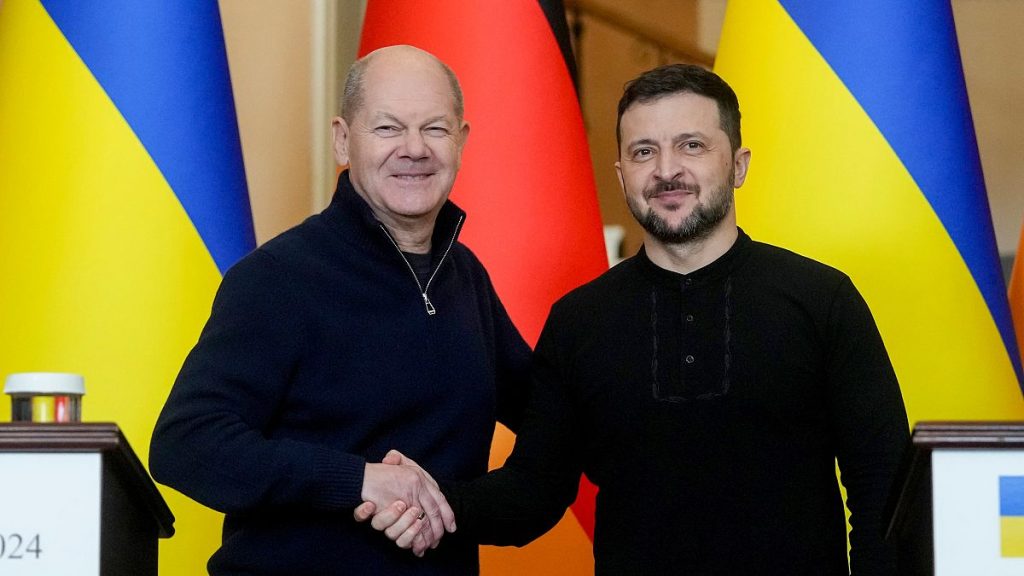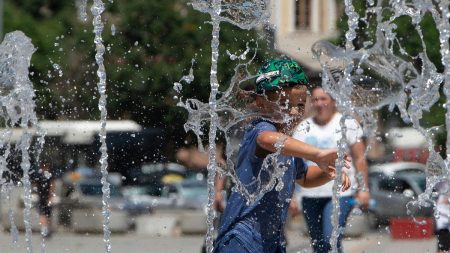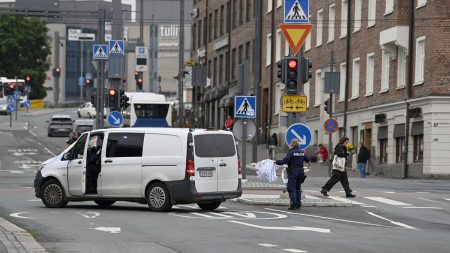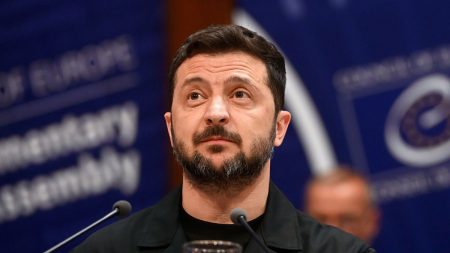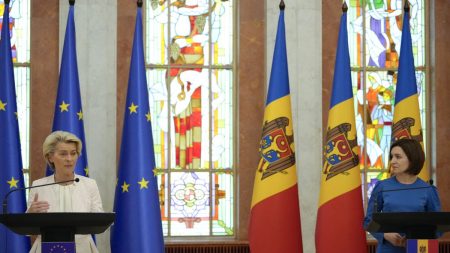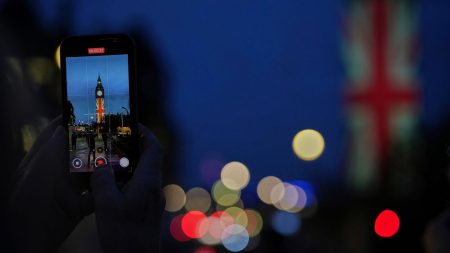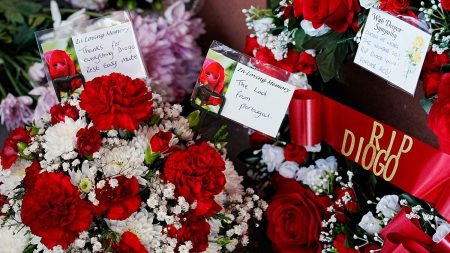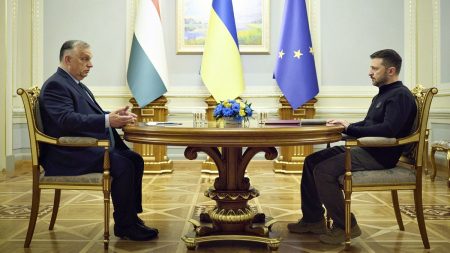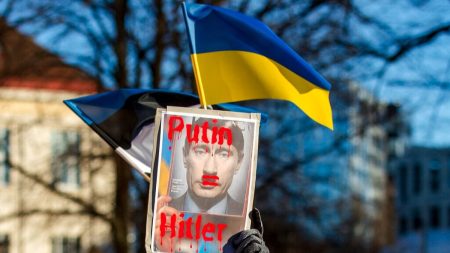During a surprise visit to Ukraine, German Chancellor Olaf Scholz addressed two significant demands from Kyiv: the provision of Taurus long-range missiles and a quicker path to NATO membership. This marked Scholz’s first visit to Ukraine in over two years, reinforcing Germany’s commitment to supporting Ukraine in its ongoing conflict with Russia. Despite this commitment, Scholz maintained his stance against dispatching the Taurus missiles, balancing robust support for Ukraine with a cautious approach to avoid escalating tensions into a direct NATO-Russia confrontation. He articulated that this cautious strategy does not diminish Germany’s extensive support for Ukraine, which remains critical in the ongoing war.
In a notable shift of perspective, Ukrainian President Volodymyr Zelenskyy indicated that offering NATO membership to territories controlled by Ukraine could potentially bring an end to the active phase of the conflict. The backdrop of this consideration came after several Western nations had permitted Ukraine to conduct long-range strikes with the weaponry provided to it, leading to escalated rhetoric and actions from Russia. Russian President Vladimir Putin, in response to Ukraine’s military engagements, announced the deployment of a new intermediate-range ballistic missile, highlighting the increasing scale of military interactions in the region. Scholz’s cautious outlook on rapid NATO membership for Ukraine reflects a broader desire for a peaceful resolution, which he argues should not come at the expense of Ukraine’s sovereignty or interests.
Scholz reaffirmed Germany’s role as a leader in supplying Ukraine with critical air defense systems, including IRIS-T and Patriot systems, as well as anti-aircraft guns. He announced planned military aid deliveries that are set to continue into 2025. This commitment comes amidst ongoing assaults from Russia on civilian targets and energy infrastructural facilities within Ukraine, which Zelenskyy emphasized during Scholz’s visit. The Ukrainian president pointed out that 347 missiles of various types had been launched recently, underscoring the urgent need for upgraded air defense systems to protect critical sites left unguarded amid the escalating threats.
Tensions remain palpable as Zelenskyy expressed concerns regarding Scholz’s conversation with Putin, suggesting that such diplomatic engagements might diminish the perception of Russia’s isolation on the global stage. As the conflict approaches its fourth year, there are worries that recognizing Russia through dialogue could unintentionally legitimize its aggressive actions in Ukraine. Scholz defended the necessity of maintaining communication with Putin, highlighting the importance of reiterating Ukraine’s sovereignty and the continued support it receives from its allies. This underscores a divergence in strategy regarding how NATO allies perceive and interact with Russia amidst the ongoing war.
Scholz’s visit included a deeply symbolic moment where he met wounded Ukrainian soldiers at a military hospital, emphasizing the human cost of the conflict. The visit also highlighted cooperation between Germany and Ukraine in defense technology, particularly with the display of drones developed through collaborative efforts. These aspects of the visit not only solidified Germany’s military commitment but also reinforced the importance of international partnerships in addressing the stark realities of war faced by Ukraine.
Overall, Scholz’s visit underscores the complexities of international support for Ukraine, balancing between the urgent military needs in the face of Russian aggression and the geopolitical implications of further entrenching NATO’s role in the region. The ongoing conflict mandates a careful navigation of alliances and support dynamics, highlighting the critical need for unity among Western partners to uphold Ukraine’s sovereignty while mitigating the risk of broader conflict with Russia. The discourse surrounding NATO membership and military aid continues to evolve, driven by the realities on the ground as Ukraine’s fight for its independence reaches a pivotal point in its history.




